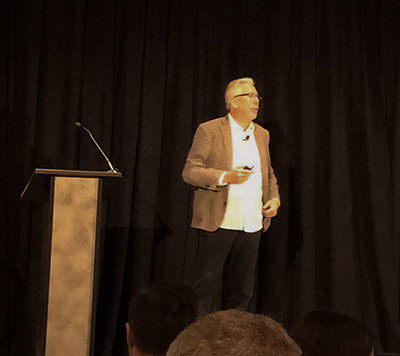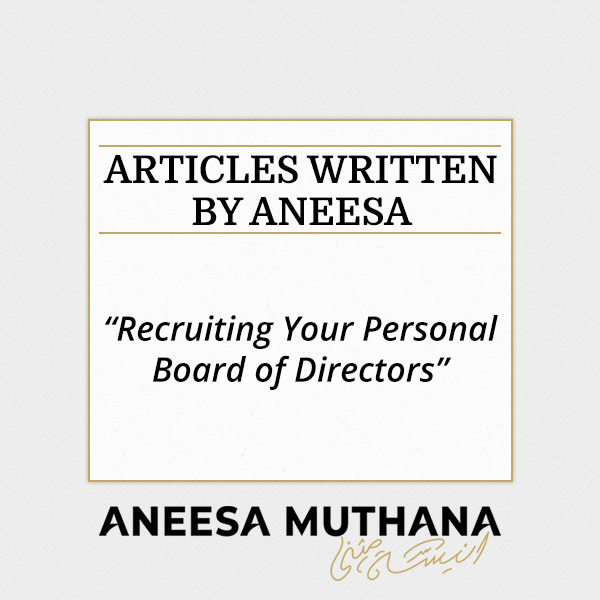Recruiting Your Personal Board of Directors
We all want to be superheroes. Wonder Woman and Superman didn’t need a board of directors, so why should we?
Though merely human, we certainly could. In fact, we probably already have at some point in our professional lives with some measure of success. As manufacturing leaders, we stare down a storm of decisions and challenges every day. Utilizations, efficiency rates, QMS, ISO, continuous improvement, R&D, tariffs—toss in life balance, family, and outreach and it can become a Category 5 hurricane.
How a Personal Board Helps Make You Better
To be blunt, facing those challenges alone over an extended period of time almost always leads to burnout and missed opportunities. We become less effective leaders, harming our business and our team’s livelihood. This is where having a personal board of directors proves invaluable.
By “personal board,” I mean an inner circle of people we admire. The goal is self-awareness and growth. This tribe of mentors, friends, and family can help us recognize our strengths and weaknesses, as well as see possibilities that may have escaped our attention.
Though informal—most of the people on my personal board aren’t aware of the term —each person tends to slot into one or more roles. These are not strictly defined and multiple people can fill a need.
- The Truth Teller: someone who tells you the cold, hard, even painful truth
- The Sponsor: someone willing to put their reputation on the line to advocate for you
- The Innovator: a creative thinker that gives you resources and fresh ideas
- The Expert: someone with experience in your role and field
- The Safe Space: someone to listen to you vent about professional and personal challenges
Whether you stick with these roles or roll with your own, your next step is just finding the right people to fill them.
Step 1: Find Your People
First, take time to reflect. The answers can be people you know well, advisors in your personal life, or just people you look up to. Look to other volunteers, speakers, coworkers, and anyone else in your network of cherished relationships.
- Who influences me?
- Who has my back?
- Whose perspectives do I value most?
- Who comes through with resources when I need them most?
Now you have a shortlist of names. Some are family and friends, while others may not be quite so close. I recommend picking three, as depth will provide more than breadth.
Step 2: Ask Them!
Remember: this is an informal invite to compare notes on topics of mutual significance, whether personal or professional. You’re just building bridges with people you admire, not scheduling an appointment to define their role and outline their future contributions! If it’s family, it may feel natural and easy. If it’s a more formal relationship, it may take more patience to nurture to fruition, but it can be well worth the effort.

4 Keys to Getting a “Yes”
- Praise. Tell them you admire them and give your reasons why. Be specific! It can be a presentation, their philosophy, or how they resolved an argument, but provide details or it will sound insincere.
- Sincerity. Don’t just hashtag it, be authentic. You will win people over with your sincerity, not your job title.
- Humility. Tell them about your intent to improve yourself by learning from people you admire. Remind them they’re one of these people and that you’re grateful for whatever time or insight they’re willing to provide.
- Brevity. Keep it short—no more than an hour (unless they offer more).
Step 3: Listen and Learn
So they’ve said yes and have agreed to give you their time and wisdom, congrats! Your approach will of course vary according to the nature of your relationship to each person, but here’s a few guidelines that have worked for me.
Definitions are not necessary. As noted earlier, I rarely bring up their “candidacy to my personal board of directors,” or some such. This person is just someone I admire and I’d like to learn more about!
Be prepared. Come with some questions and your goal already in place. If you don’t already know specifically what they’ve done to draw your admiration, then you’ve probably picked the wrong person.

Respect diversity. With respect to your core values, if you notice all of your candidates look and sound like you, you’re limiting your potential for growth. In most cases, it’s productive to respectfully acknowledge and discuss differences in your background.
Make a connection. Sit in reasonably close proximity and tune out distractions. Avoid putting a desk between you, and put away your phone and laptop.
Listen. Ask questions, then ask more questions about their answers. Humility and curiosity are your allies. Divulging details about your life can help establish trust and intimacy, but keep the focus of the conversation on them as much as possible.
Expect surprises. You may get to know them and learn they’re not the person you thought. Or, you repeat these discussions over many years and suddenly realize they’ve changed. If need be, you can quietly remove them from your personal board, but there’s almost always a lesson to be learned from these discoveries.
Thank them. ALWAYS show gratitude, even if you learn next to nothing and the person turns out to be the opposite of your expectations. Never burn bridges. Hand-written thank you cards are still one of the most reliable ways to leave a positive lasting impression.
Entrust and Empower
As tempting as it can be to act as the lone hero, engaging others for their insights frees us from the prison of our own perspective. As manufacturers, our legacy is bringing people together to make something that will go on to serve a bigger purpose, touch lives, and contribute to the world at large. Seeking out your personal board of directors—and serving on someone else’s—fulfills our responsibility to promote that legacy as well as each other.
Not bad for the price of a cup of coffee.
(Thank you to Dirk Vershure for use of his image and his wit.)















